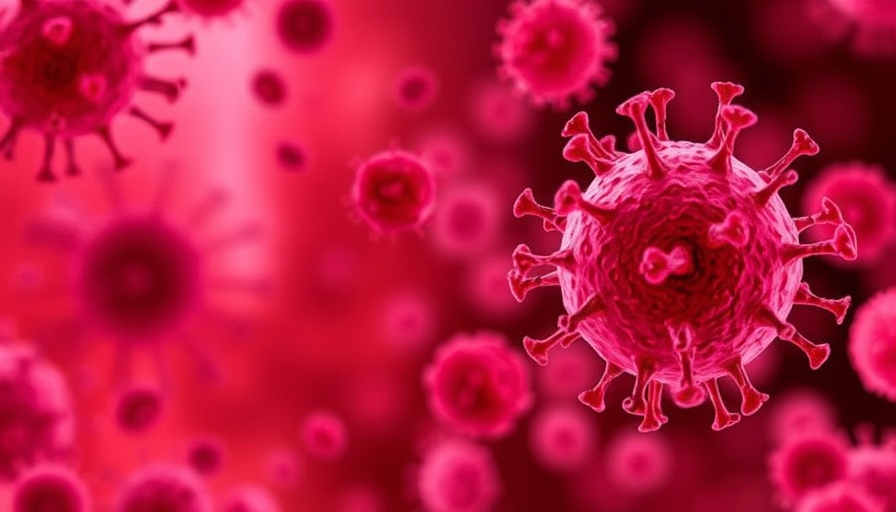
The Hidden Influence of Circadian Rhythms on Our Health
Circadian rhythms are often overlooked in discussions about health, yet they serve as a fundamental internal clock influencing our physiological and behavioral cycles over a 24-hour period. These rhythms help synchronize our bodies, not just for sleep-wake cycles but also for numerous other bodily functions. Whether it's digesting food, regulating hormones, or even influencing our mood, understanding circadian rhythms is vital for enhanced well-being.
How Circadian Rhythms Affect Mental Health
The intricate relationship between circadian rhythms and mental health has garnered significant attention from researchers. Studies have shown that disruptions in these natural rhythms can lead to mental health issues, including depression and anxiety. For instance, irregular sleep patterns can negatively impact mood regulation and cognitive function. With many people living busy lives that conflict with their natural cycles, it's essential to seek strategies that help restore healthy circadian patterns.
Exploring the Genetic Connection
A deeper understanding of circadian rhythms also opens the door to investigating the genetic underpinnings that govern these biological processes. For example, specific genes like BMAL1 have been implicated in both physical and mental health conditions. These gene variations can affect how our circadian rhythms function, potentially leading to issues such as type 2 diabetes or schizophrenia. This connection between genetics and circadian rhythms offers valuable insights into how we might one day tailor health interventions based on genetic profiles.
A Study on Circadian Rhythms and Cardiometabolic Health
A recent study conducted using the UK Biobank, which included almost 500,000 participants, sheds light on how circadian factors relate to cardiometabolic health. Researchers investigated variants in the BMAL1 gene and assessed whether these variants correlated with health markers like blood pressure and mental health conditions.
The study revealed significant associations, highlighting how genetic factors tied to our circadian clock could play a role in our overall health. These findings could eventually guide personalized wellness strategies to help individuals manage their health by understanding their unique circadian profiles.
The Future of Circadian Health: Predictions and Opportunities
As our understanding of circadian rhythms deepens, we may unlock new frontiers in health and wellness. Future research may provide insights into how specific lifestyle changes, tailored to align with our circadian rhythms, can enhance mental and physical health. For instance, optimal meal timing and sleep hygiene might be areas worth focusing on to mitigate potential health risks.
Practical Tips for Aligning with Your Circadian Rhythm
- Prioritize Sleep Hygiene: Ensure you maintain a consistent sleep schedule, aiming for 7-9 hours of quality sleep each night.
- Mindful Eating: Align meal times with daylight hours to help your body digest food more effectively.
- Exercise Regularly: Engage in outdoor physical activity to harness natural sunlight, reinforcing the body's natural clock.
- Avoid Blue Light: Limit screen exposure in the evening to enhance sleep quality.
The Importance of Community and Support
Understanding circadian rhythms is not just an individual journey; it also calls for communal awareness and support. Communities should strive to create healthy environments that promote well-being—for instance, through public education about the importance of sleep and proper schedules that align with natural light cycles.
In conclusion, circadian rhythms profoundly influence our mental and physical health. By acknowledging their importance and taking steps to align our lifestyles with these natural cycles, we open the door to improved overall health. Empowering ourselves with this knowledge can lead us toward a healthier and more fulfilling life.
As we continue to explore the nexus of circadian rhythms and health, stay informed about developments in this area. Look for community outlets that provide resources and support to encourage a healthier lifestyle harmonized with our body’s natural rhythms.
 Add Row
Add Row  Add
Add 



Write A Comment